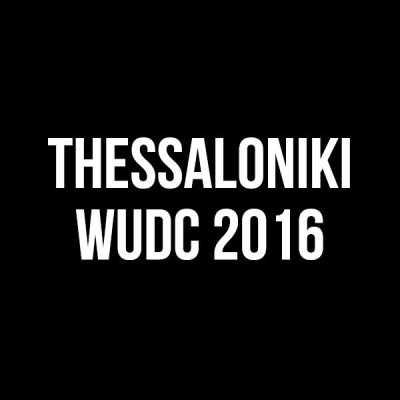Debating comes home: The Thessaloniki WUDC 2016 bid in brief
 As we already reportet, Thessaloniki bids for WUDC 2013. With the lauch of their Website some more information are now available.
As we already reportet, Thessaloniki bids for WUDC 2013. With the lauch of their Website some more information are now available.
Tournament
- Team Cap: 420 teams, Cap of 3 teams per institution
- Registration Fee: Maximum €400, to be reduced according to sponsorship
Adjudication:
- Chief Adjudicator:Manos Moschopoulos
- Deputy Chief Adjudicators: Chris Bisset, Tasneem Elias
Policy Highlights
- 3 DCAs to be chosen after an application process in 2014
- We are committed to ensuring that the adjudication core represents the diversity of regions, language statuses and genders that attend WUDC. We also recognise that appointing the best candidate may require a second person from a particular region
- €50000 in our worst-case scenario budget for judge subsidies
- Training programme before and during the tournament led by Nita Rao
- Build upon existing literature and publish training lectures and materials before WUDC
- Debate workshops and adjudication seminars on December 27 and 28 for new institutions
- Fair and transparent rotation and feedback mechanisms during the competition
- Pre-WUDC judging workshops in Southeastern Europe to boost local judging capacity
Organising Committee
- Convenor: Petros Papalianos
- Organising Committee: Milan Vignjevic (Convenor of the European Universities Debating Championship 2012 in Belgrade), Katerina Karadimitri (Convenor of the Patras Open in 2013), Predrag Petricevic (World EFL Finalist in 201, Logistics Director for Belgrade EUDC 2012), Angelos Emmanouilidis (Convenor of the Turku Open 2013), Stratos Baloutsos (Managing Partner of the Debating Society of Greece), Norah Dimopoulou (Legal Counsellor of the Debating Society of Greece), Milan Krstanovic (tournament director for Belgrade EUDC 2012)
Host societies
- The Debating Society of Greece was founded by a group of experienced Greek debate trainers and organisers in order to provide debate training to young people in universities, schools and community centres, to run programmes that achieve social and cultural aims through communication and public speaking and to organise local and international debating tournaments. The organisation aims to help create a culture of dialogue in Greece at a time when the economic crisis, the subsequent austerity measures and the increasing polarisation of political discourse have led to the breakdown of the Greek social fabric and the rise of violent attacks on marginalised and vulnerable social groups. The Debating Society of Greece is a member of the International Debate Education Association.
- The Open Communication Debating Network (Otvorena komunikacija in Serbian) is a university debating network that seeks to advance the culture of public dialogue. It was founded in 1997 by professors and students of the University of Belgrade, and since over 1500 students from Serbia and the region have graduated from its educational programs. Open Communication is working on the development of critical thinking and the culture of dialogue by supporting university debating clubs, and high school debating clubs since 2010. Open Communication was the host of the 2012 European University Debating Championship and are co-hosting the 2014 European University Debating Championship with the Zagreb Debating Union.
- The Rhetoric Club of the Aristotle University of Thessaloniki is one of the oldest university debating clubs in Greece. Based at the largest university in Greece and the Balkans, it hosts the annual Panhellenic Championships in Greek and serves all public university students in Thessaloniki.
ak/ with material from the Website http://thessaloniki2016.com/





